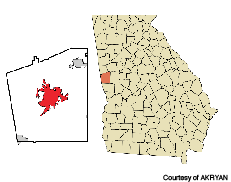![]()

LaGrange, a town in Georgia, recently took steps to atone for the 1940 lynching of Austin Calloway.
The police did not investigate the killing, nor did it receive much attention from the media, according to CNN.
On Jan. 26, the town held a service to remember Calloway that exceeded expectations of attendance.
Zoe Shafer, senior biblical studies and theological studies major, said she believes this is a positive thing, though she would rather they address the current state of racism.
Shafer said she believes this is necessary because though racism still exists, it is often in a different form now.
According to the Equal Justice Initiative there were 4,075 lynching’s in the South from 1877 to 1950, and only a limited number have been acknowledged. CNN said their research showed only four have been acknowledged, and only one in the Southeast.
The police chief told CNN, “The past shapes the present. This in an effort to evolve our relationship and partnership with the African-American community and allow us a city as a whole to move forward. That can only be done if trust is established. That trust can only occur if past wrongs are acknowledged and addressed.”
During the event, he said, “and for that I am profoundly sorry. It shouldn’t have happened,” according to CNN. “I sincerely regret the role law enforcement played in Austin Calloway’s death, both through our action and our inaction.”
Reverand Mae Elise Cannon spoke on a similar topic in chapel on Jan. 23, she discussed Nehemiah 1.
She said salvation is not just for us personally but, “Salvation is for the world. That we might believe not only for our own personal righteousness, but so the world would be different.”
She then spoke on Nehemiah, a prophet of God. Nehemiah is known best for rebuilding broken walls. “Part of the work of justice is rebuilding broken walls,” she said.
Cannon spoke on how the Israelites were oppressed due to the effects of their captivity. But, she said the situation was not without their fault. “They were guilty of sins themselves”
However, She did not believe that Nehemiah was guilty, “We don’t have any indication that he was guilty of those sins,” Cannon said.
“Nehemiah wasn’t guilty; he wasn’t even there,” Cannon said, “Nehemiah himself was not guilty are yet he says ‘I confess our sins…”
“Including all the sins that had gone before him,” Cannon said.




